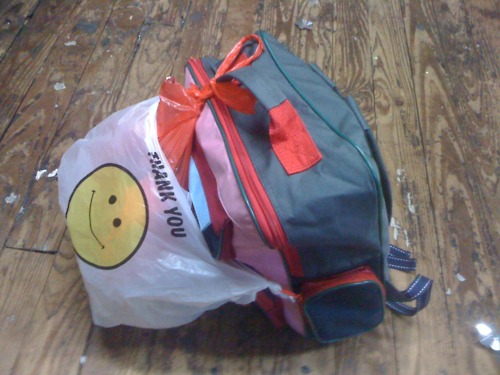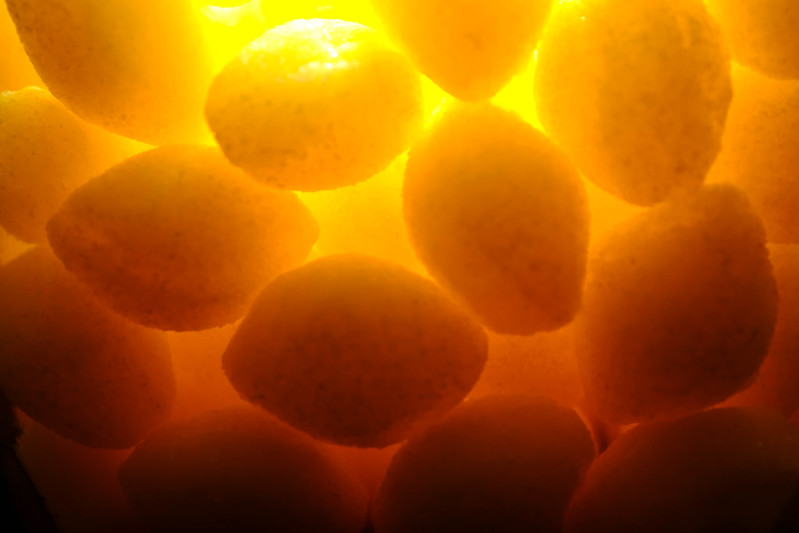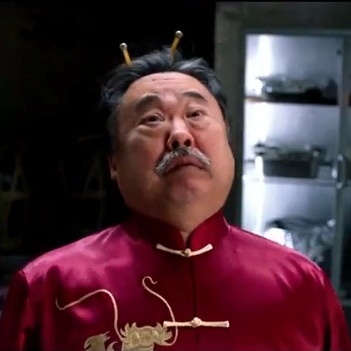A new documentary about the famed Chinese artist and dissident focuses on his activism more than it does his art.
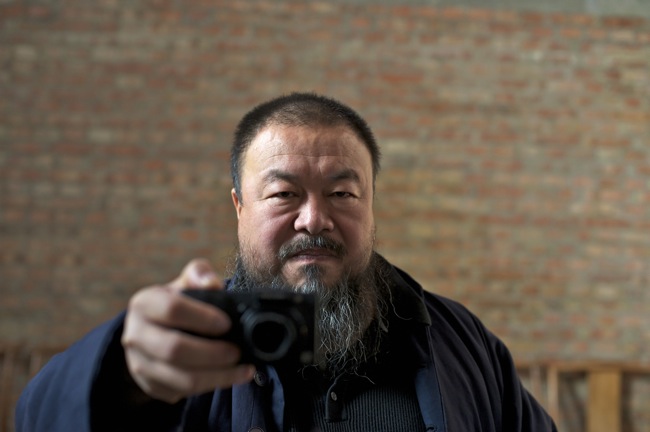
July 27, 2012
Societies will occasionally attach to an artist a prophetic aura. If Warhol was the prophet of consumption, branding, and self-promotion, Ai has shown the power of creative dissent, feeding media-friendly stunts to a wide social media network and global art discourse.
At the same time, Ai is far more than your average activist: his artistic practice infuses his political statements with a certain poetry. His huge facade installation in Munich consisted of backpacks that spelled out “She lived happily on this earth for seven years,” a quotation from the mother of one of the Sichuan earthquake’s victims; the colorful backpacks reference those found among the rubble. Klayman says of the difference between Ai and traditional activists: “He is not writing a treatise about how to reform the government. He’s giving the finger to the government. That’s the difference. That’s also why he’s a more interesting, palatable figure to a broader audience.” The backpack installation, entitled Remembering, discusses a 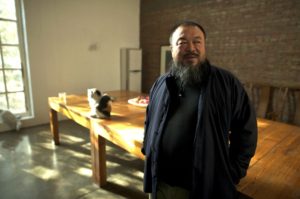 reeling tragedy not through policy and numbers, but through a cogent meditation on loss and collective memory.
reeling tragedy not through policy and numbers, but through a cogent meditation on loss and collective memory.
All of this is not to fault Ai for his savviness. Few outside China would know about the Sichuan earthquake if not for his work gathering names and drawing attention to the government’s silence. His 2011 arrest also proved that not even a figure as internationally loved as Ai is safe from government abuse. (And he is loved: Throughout Never Sorry, we are introduced to swathes of people whose admiration for Ai is palpable, from the volunteers who help him in his studio, to the curators and writers who support his work, to the hundreds who come out in solidarity against the government’s demolition of his Shanghai studio.) Ai is wealthy, successful, and world-famous to be sure, but against the Chinese government he plays the role of everyman and underdog.
The great test for the film, and for Ai himself, is whether audiences will see him as more than a conduit to vilify the Chinese government. It is an easy target, and Ai is an easy—and potently public—hero. If Ai is to be remembered as an artist, the endurance of his works will depend on how far they resonate beyond this moment of media frenzy. As Klayman says, the film is “not just about fixing something in China, it’s about: ‘What are you going to do as an individual?’”
Ai Weiwei: Never Sorry opens in limited release July 27.

